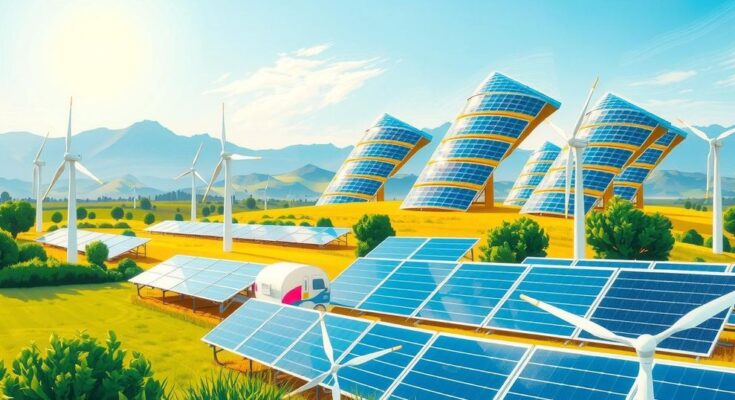Cuba has restored electricity to most areas after a recent blackout and is advancing climate resilience projects. Diplomatic relations with Nigeria are being strengthened through a ministerial visit, while changes in U.S. policies impact broadcasting and immigration discussions involving Cuba.
Cuba has recently resolved significant electricity issues that left over 10 million people without power due to a substation short, marking the fourth major grid collapse since October 2024. By Sunday night, much of Havana was reconnected. However, Canada has warned its travelers of ongoing power shortages at resorts, as outages may persist despite available generators.
In climate initiatives, the “Mi Costa” project, supported by Cuba’s Ministry of Science, Technology and the Environment along with other partners, seeks to enhance climate resilience along 1,300 kilometers of Cuba’s southern coast. Over an eight-year implementation period, it will focus on ecosystem-based adaptation across 24 municipalities in seven provinces, promoting water and soil management, coastal ecosystem preservation, and blue carbon initiatives.
In U.S.-Cuba relations, former President Donald Trump has ordered significant cuts to the Office of Cuba Broadcasting, including shutting down Radio and Television Martí, which were established to promote democracy in Cuba. This action comes alongside administrative changes affecting the U.S. Agency for Global Media, raising uncertainty surrounding the future of these Spanish-language stations.
Cuba’s Foreign Minister, Bruno Rodríguez Parrilla, is currently visiting Nigeria to strengthen bilateral relations in health, education, agriculture, science, technology, and cultural exchange. This visit underscores the historic cooperation between Cuba and Nigeria and aims to explore further collaborative opportunities in these fields.
Lastly, former President Trump is contemplating a plan to detain up to 30,000 migrants at the Guantánamo Bay naval base. This proposal would expand the base’s involvement in U.S. immigration policy, which has previously housed migrants during the 1990s crises, sparking renewed discussions about its use for such purposes.
In summary, Cuba has addressed its recent electricity crisis while advancing significant climate adaptation projects. Additionally, diplomatic efforts with Nigeria signify a commitment to strengthening bilateral ties. Shifts in U.S. administration policies may affect broadcasting efforts and immigration strategies concerning Cuba, reflecting a complex and evolving geopolitical landscape.
Original Source: globalsouthworld.com




